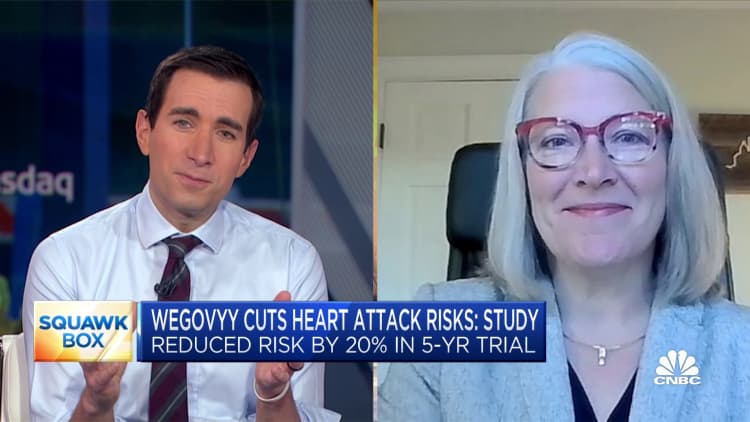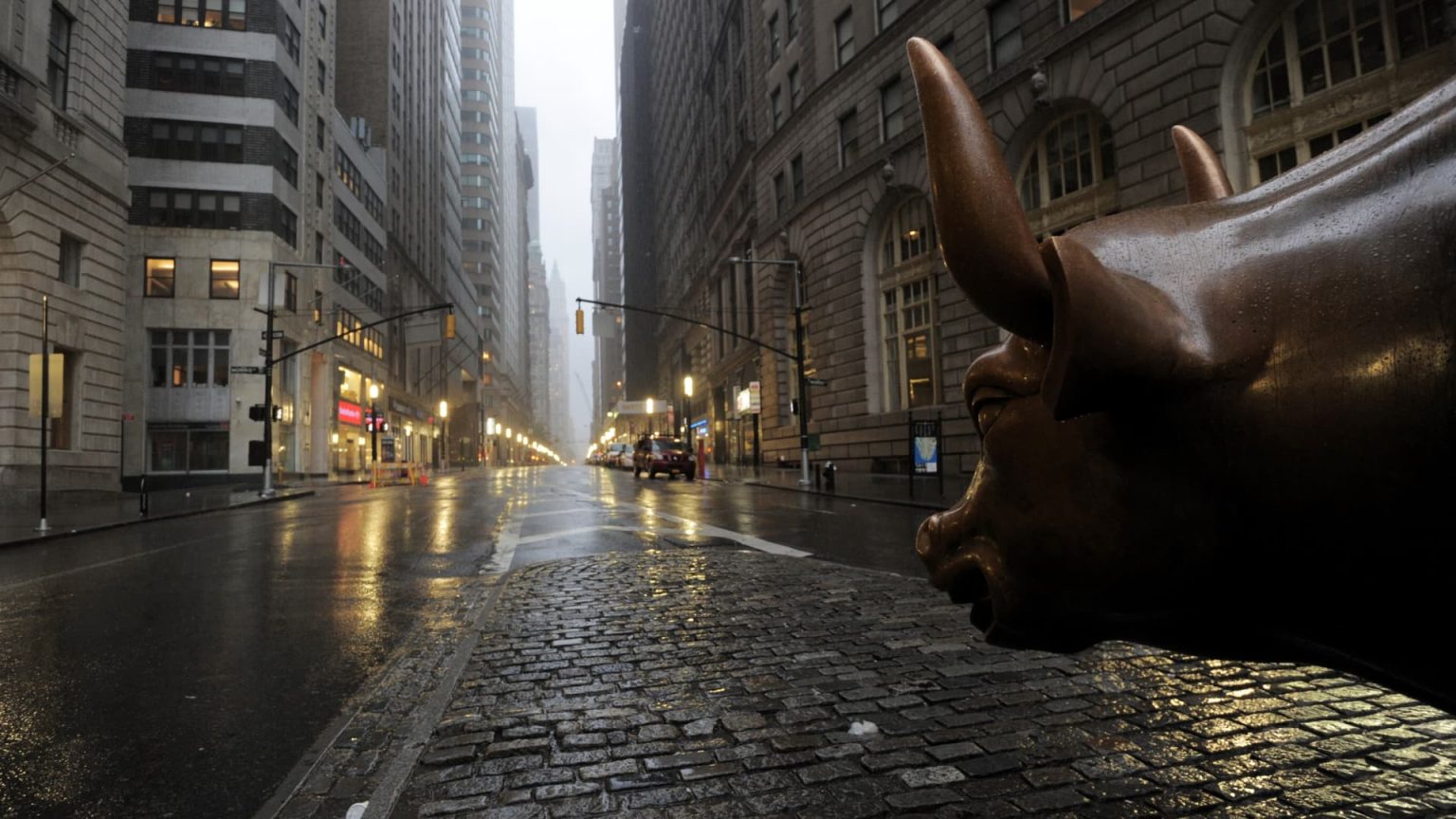An EU wealth tax, the “end of capitalism” in the U.S. and a major health crisis arising from obesity drugs are just some of the “outrageous predictions” put forward by Saxo Bank in a report published Tuesday.
Heading into 2024, the Danish investment bank suggested the world is at an “inflection point, with the familiar road of the last decade coming to an end.”
The predictions focus on a “series of unlikely but underappreciated” events that if they were to occur, would “send shockwaves across the financial markets.” The forecasts are not representative of the bank’s official views.
“It’s all about provoking thought processes, and what I’ve found over the last 21 years is that boards like it when they’re doing forward planning, central banks like it for the risk mitigation and I think our clients love it because it’s engaging — it’s like being at a good dinner table conversation where people are pushing against each other,” Saxo Bank Chief Investment Officer Steen Jakobsen told CNBC on Tuesday.
EU goes ‘Robin Hood’
As the European Union requires more funding for a suite of long-term policy goals, including climate change mitigation, health care, education and the war in Ukraine, Saxo Bank Head of Equity Strategy Peter Garnry suggested the bloc’s leaders could implement a 2% wealth tax.
This would be rendered more likely if the population “realises how little in tax billionaires are actually playing,” he speculated, with social unrest frequently simmering across the continent.
Citing the Global Tax Evasion Report 2024, Garnry noted that despite its vast welfare system compared to the U.S., the EU has 499 billionaires (in U.S. dollar terms) who pay the lowest personal tax in percentage of wealth compared to billionaires from North America and East Asia.
“Billionaires in France have a pre-tax income rate on par with US billionaires despite the fact that the entire population is paying between 46-50% in average tax, violating the core principle of reciprocity. In the Netherlands, it is even better to be a billionaire, as the average tax rate is below what US billionaires pay, Garnry noted.
A 2% wealth tax on EU billionaires would raise 42 billion euros ($45.5 billion) toward the funding of key policy aims, while a wider 2% tax on multi-millionaires could lift this to 100-150 billion euros, Garnry projected.
“The EU’s modern version of Robin Hood sends shockwaves through the European luxury industry. Recent studies have shown a strong correlation between the pursuit of luxury items and levels of income and wealth inequality,” Garnry predicted.
“The EU Commission’s new wealth tax immediately lowers market expectations for luxury goods demand in the future and investors dump European luxury stocks.”
This would see shares of French luxury giant LVMH, Europe’s second-largest company by market capitalization, plunge 40%, while luxury vehicle makers such as Porsche and Ferrari would also suffer, the report speculated.
Obesity drugs trigger a health crisis
The success of new GLP-1 obesity drugs have been a key fixture in 2023, with the wildly popular Wegovy propeling Denmark’s Novo Nordisk to supplant LVMH as Europe’s most valuable publicly listed company.
But Saxo strategists said this creates a risk that reliance on such drugs grows to the extent that populations decrease exercise and increase junk food intake.

Should this coincide with governments and U.S. health insurers increasingly viewing anti-obesity drugs as potential cost savers, demand could skyrocket and vastly outstrip supply, leaving those who have begun a course of treatment without access and therefore exposed to this change in lifestyle habits.
“Global adult obesity rates shoot up from the current 39% to 45% in 2024, bringing a host of other side effects, such as a rise in diabetes incidence or even a spike in heart disease, more injuries due to reduced muscle strength and general reduction in immune system efficiency. Increased illnesses and sick days make global productivity dip,” Garnry and fellow strategist Charu Chanana projected in the report.
The end of U.S. capitalism
Against an increasingly uncertain geopolitical backdrop, Saxo Senior Fixed Income Strategist Althea Spinozzi hypothesized that the U.S. government could be forced to further increase defense spending while the Federal Reserve may still have to tighten monetary policy amid a second wave of inflation.
In order to avoid social unrest, Congress may be forced to increase fiscal spending, sending the budget deficit above 10% of GDP and meaning the government must foster demand for U.S. Treasurys urgently.
“The attention goes to the stock market, where the ‘Magnificent Seven’ have now become twelve, thanks to a missed downturn and government support programs directed to lenders and homeowners,” Spinozzi said. The group currently comprises Apple, Amazon, Alphabet, Meta, Microsoft, Nvidia and Tesla.
“To join the club are Eli Lilly, Novo Nordisk, JPMorgan Chase, LVMH and ASML. As the ‘Twelve Titans’ multiplies their valuations within a few months, inequality increases between investors and non-investors.”
Understanding that political stability depends upon its continued ability to finance a huge deficit through U.S. Treasury issuance, thus lowering interest rates, the government must increase the attractiveness of domestic bonds over stocks.
“Under intense pressure from the White House, Congress makes capital gains and interest income on US Treasuries tax-free. With government debt in the hands of domestic investors, the cost of funding becomes less volatile,” Spinozzi speculated.
“This dramatic move marks the end of capitalism, as money rotates from private corporations to the public, and holding riskier assets becomes more expensive. Counterintuitively, the ‘Twelve Titans’ consolidate their market dominance, as they benefit from long-term lower cost of funding, while the rest of the stock market collapses.”
Other outrageous predictions include: oil hitting $150 per barrel and Saudi Arabia subsequently buying European soccer’s Champions League in order to take it global; a generative AI deepfake triggering a national security crisis; Robert F. Kennedy Jr. winning the U.S. presidential election; Japan being forced to abandon its yield curve control policy; and a coalition of deficit countries forming a “Rome Club” to restructure global trade dynamics.
The bank has made a set of “outrageous predictions” each year for the last decade and some have actually come true — or at least come close.
In 2015, Saxo forecasted that the U.K. would vote to leave the European Union following a United Kingdom Independence Party landslide, it predicted Germany would enter a recession in 2019 – which the country narrowly avoided – and it wagered that bitcoin would experience a meteoric rally in 2017.
Read the full article here



